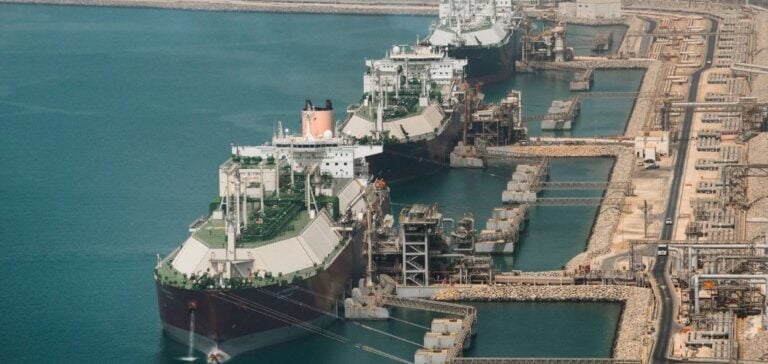Qatar has announced the conclusion of a major agreement with China for the supply of liquefied natural gas (LNG), marking a new step in its strategy to strengthen energy relations with Asian markets. The partnership, signed in collaboration with Shell, provides for the delivery of 3 million tons of LNG annually starting in January 2025.
According to a statement from QatarEnergy, the emirate’s state-owned company, this agreement underscores their commitment to meeting the growing needs of international markets. “We are pleased to conclude this agreement with our partner Shell, enabling us to meet the demands of its customers in China and strengthen our contribution to global energy supply,” said Saad al-Kaabi, QatarEnergy’s Minister of Energy and CEO.
A Strategic Partnership in a Challenging Energy Context
Qatar, a key player in the global LNG market, occupies a leading position alongside the United States, Australia, and Russia. This agreement is part of a series of partnerships the emirate has signed with international partners. China, already one of the largest consumers of Qatari LNG, is further cementing its strategic energy ties with Doha through this partnership.
The growing demand for LNG in Asia is driven by the energy transition and the need to secure stable supplies, especially in a context where disruptions linked to the war in Ukraine have shaken global energy flows. European markets, initially supplied by Russia, have also increased their dependence on Qatari LNG.
A Model of Longevity and Trust
The exact duration of this agreement with Shell has not been disclosed, but QatarEnergy has previously signed similar contracts lasting 27 years with partners such as Sinopec, Total, and Petronet. These agreements reflect a long-term vision aimed at stabilizing the market and ensuring energy security for global consumers.
In 2022, Qatar signed its first major agreement with Sinopec to supply China over several decades, setting a precedent for similar partnerships. With this new agreement, Shell also strengthens its position in the Chinese market by benefiting from privileged access to Qatari gas.
An Expanding Asian Market
Asian markets, including China, Japan, and South Korea, represent major outlets for Qatari gas. China, in particular, is investing heavily in natural gas infrastructure to reduce its reliance on coal and meet its climate commitments. This new contract highlights the growing importance of LNG in China’s energy strategy.
Meanwhile, Qatari LNG exports to Europe have increased in recent years to compensate for reduced Russian deliveries, further diversifying Qatar’s gas destinations. This ability to adapt quickly to market fluctuations has strengthened Qatar’s strategic position on the global energy scene.






















